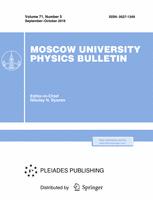This article considers applications of the formalism of subjective modeling proposed in [36], based on modeling of uncertainty reflecting unreliability of subjective information and fuzziness common of its content. A subjective model of probabilistic randomness is defined and studied. It is shown that a researcher–modeler (RM) defines a subjective model of a discrete probability space as a space with plausibility and believability that de facto turns out to be a subjective model of the class of subjectively equivalent probability spaces that model an arbitrary evolving stochastic object, and the same space with plausibility and believability is its subjective model. This enables us to empirically recover a subjective model of an evolving stochastic object accurately and using a finite number of event observations, while its probabilistic model cannot be empirically recovered. A similar connection is established between equivalence classes of plausibility and believability distributions and classes of subjectively equivalent absolutely continuous probability densities. For two versions of plausibility and believability measures, entropies of plausibility and believability distributions of the values of an uncertain element (UCE) that model RM’s subjective judgments as characteristics of the information content and uncertainty of his judgments are considered. It is shown that in the first version entropies have properties that are formally similar to those of Shannon entropy but due to absence of the law of large numbers (LLN) their interpretation fundamentally differs from the interpretation of Shannon entropy. In the third version there is an analog of the LLN, and its connection to the Shannon entropy was obtained for the expected value of subjective informational content/uncertainty. A subjective model $M(\tilde{x}) = (\Omega, P(\Omega), P^{\zeta, x}(\dot,\dot;\tilde{x}), N^{\zeta, x}(\dot,\dot;\tilde{x}))$ of an uncertain fuzzy element is considered, and an optimal subjective rule of identification of its states using observation data is obtained and studied. Methods of expert-aided reconstruction of fuzzy and uncertain fuzzy element models are also considered.
Yu. P. Pyt'ev



